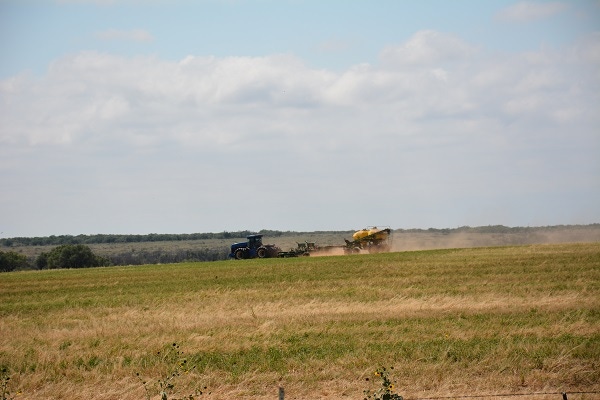January 9, 2015

Many farmers retire and rent their land as an additional source of retirement income. The tax treatment of income from rental activities differs from tax treatment of business income. Rental income where the retiree does not participate in the management or operation of the rental activity is not subject to the 15.3 percent self-employment tax, which makes a rental activity attractive. However, rental income is subject to the 3.8 percent net investment income tax (NIIT). Net investment income includes but is not limited to gross income from interest, dividends, net capital gains, non-business rental income, and non-business royalty income.
For the latest on southwest agriculture, please check out Southwest Farm Press Daily and receive the latest news right to your inbox.
The amount subject to the 3.8 percent NIIT is the lesser of the taxpayer’s net investment income or the amount of the individual’s modified adjusted gross income (MAGI) that exceeds the threshold as shown in the following table. Foreign source income is the only modification that is made to a taxpayer’s adjusted gross income to determine MAGI for the NIIT.
Modified Adjusted Gross Income Thresholds
for the Net Investment Income Tax
Filing Status Income Threshold
Married Filing Jointly $ 250,000
Married Filing Separately $ 125,000
Single $ 200,000
Head of Household $ 200,000
(with a qualifying person)
Qualifying Widow(er) with $ 250,000
a dependent child
In addition to the rental income being subject to the NIIT rules, farmers need to be aware that renting their land after retiring could make the gain on the sale subject to the NIIT. This is because the land is now treated as investment property and not trade or business property.
The NIIT needs to be factored into the decision to rent as well as the decision to sell the land. To avoid the consequences of the NIIT a farmer may want to continue farming the land with another farmer who does all the work until the land is sold. Another option to avoid the NIIT is to hire a custom operator to do all the work as well until the land is sold. Each of these situations results in business income subject to the self-employment tax and not to the net investment income tax.
The tax items to consider for the decision to sell the land and retire in the same year versus converting it to rental property and selling it at a later date includes a taxpayer’s ordinary income, net capital gain, self-employment income, and net investment income. An installment sale agreement could also be used to spread the gain recognition over several years, which could greatly reduce the NIIT consequences or possibly eliminate the NIIT completely. These two scenarios must be examined on a case by case basis since some taxpayers will not be affected by the NIIT while others will experience a sizeable tax bite due to the NIIT.
This is only a brief discussion of the NIIT rules that affect farm and ranch operators for 2014 and beyond. Please consult your tax preparer or advisor for additional information concerning this and other tax provisions specific to your individual and business situation.
You May Also Like




